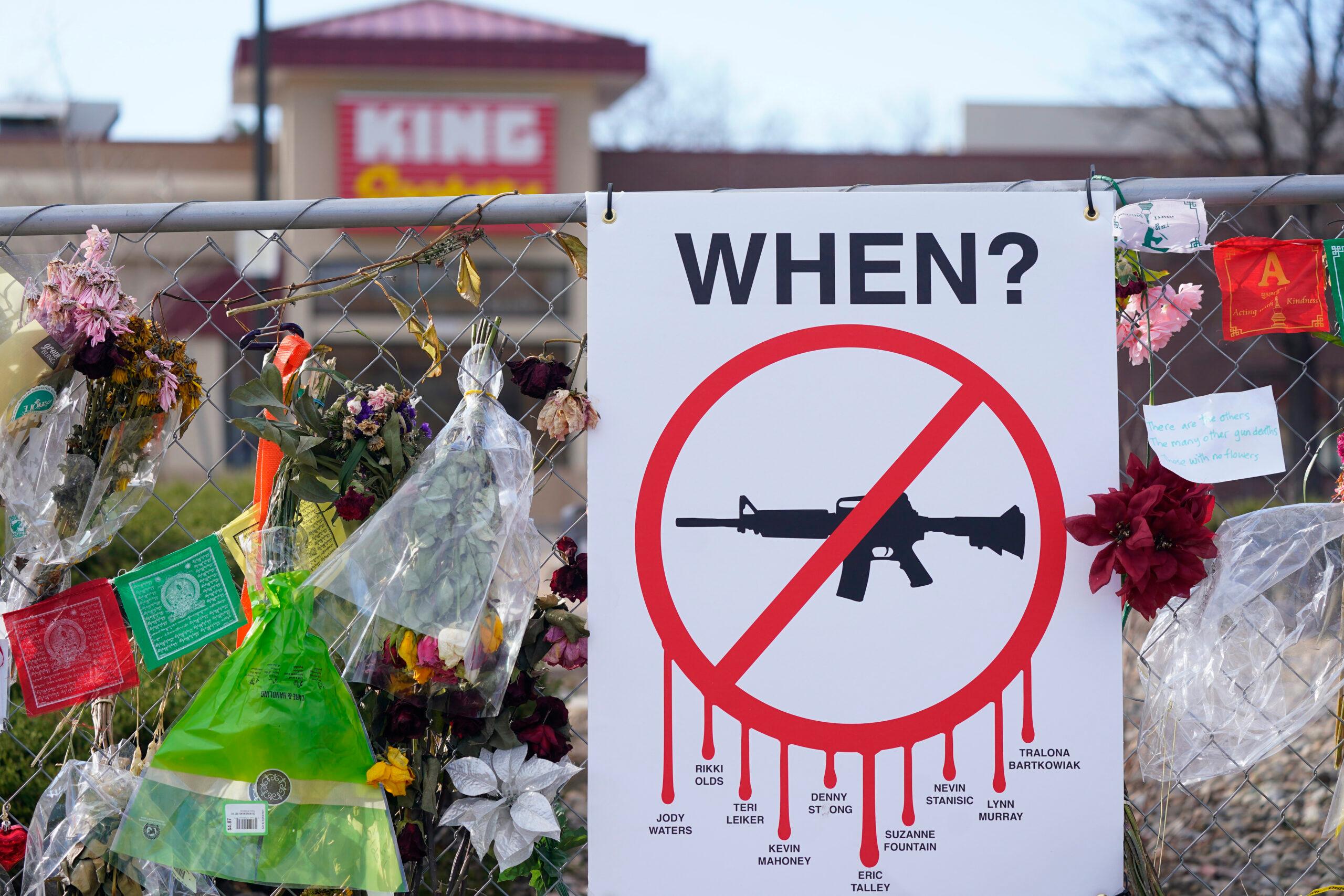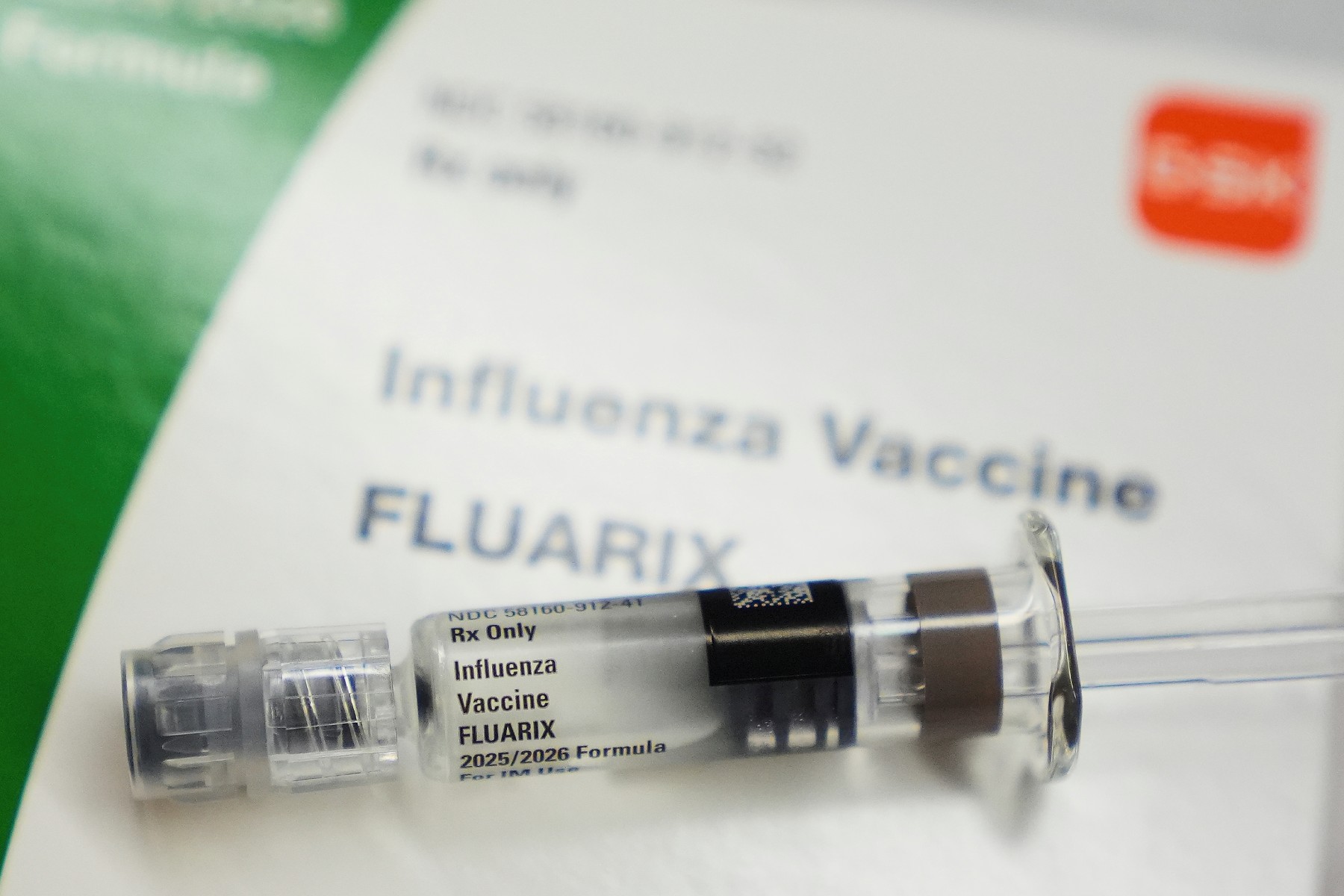
The case against the manufacturer of the gun used in the 2021 shooting at a Boulder King Soopers is moving forward.
Some victims' families are suing gun manufacturer Sturm, Ruger & Co. over how it marketed the AR-556 pistol used by the shooter, Ahmad Al Aliwi Alissa, inside and outside the store in March 2021. Ten people — shoppers, workers and a Boulder police officer — were killed.
Alissa was sentenced last year to 10 consecutive life terms plus 1,334 additional years in state prison. But this lawsuit focuses on Ruger’s role — another way of seeking justice, said Eric Tirschwell, executive director of Everytown Law, one of the firms representing the estates.
In a ruling Thursday, a Connecticut Superior Court judge denied Ruger’s motion to strike, allowing the case to enter the discovery phase of litigation. That means both sides can now gather evidence and information from each other to prepare their case. It also puts Ruger executives and employees under oath for testimony, Tirschwell said.
“We know that these shootings are not just the result of the act of one person,” he said. “What we’ve alleged is that Ruger, the manufacturer of the weapon that was used to carry out this massacre, put profits over safety, they violated federal gun laws, and those violations paved the way for the devastatingly tragic outcome at King Soopers.”
Firearm manufacturers are generally shielded from liability under the Protection of Lawful Commerce in Arms Act, enacted in 2005. But there are six exceptions, one which allows cases to proceed if plaintiffs can show a gunmaker knowingly violated a state or federal law related to the sale or marketing of firearms.
“That’s the exception that we are relying on centrally in this case,” Tirschwell said.
Some victims' families — in two separate lawsuits — argue that while the Ruger AR-556 is technically a pistol, the company designed, marketed and sold it as an AR-15-style rifle. The suits allege Ruger made cosmetic modifications to avoid regulations governing rifles, and consequently violated federal laws on the sale of short-barreled rifles.
“That’s really at the heart of this case,” Tirschwell said.
The plaintiffs argue that had the weapon been classified as a short-barreled rifle, the shooter would have faced more regulatory steps to obtain it, including a special application, fingerprinting, a tax payment and approval from the Bureau of Alcohol, Tobacco, Firearms and Explosives.
“Because Ruger classified this weapon when they marketed it and sold it as a pistol, the shooter was able to walk into a gun store and immediately walk out with the weapon and did not have to go through this heightened process,” Tirschwell said.
Similar cases have moved forward in the past. In 2019, the Connecticut Supreme Court ruled that Remington could be sued by the families of Sandy Hook victims over how it marketed the rifle used by the shooter who killed 26 people in 2012. Remington later settled for $73 million.
Tirschwell said that while the facts in the Ruger case differ, both rely on the same federal exception. The families, he said, are encouraged by the judge’s decision.
“It’s an important step forward on the path to accountability. This is a significant landmark in what is already a multi-year effort to hold Ruger accountable,” Tirschwell said. “Our hope is to move this to trial as quickly as possible. And that is how we intend to achieve justice and accountability through the civil justice system now for these families.”







